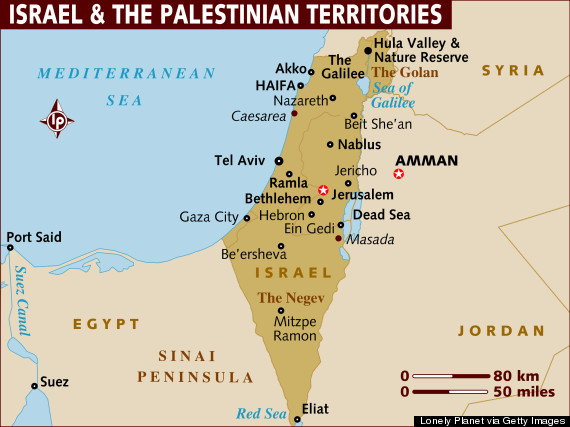
The recent violence between Israel and Hamas in Gaza has not emerged just out of recent events, but has a deep-seated and highly contentious history. As such, there's been no lack of stories and analysis pieces that address the face-off and its roots. The WorldPost presents a selection of some of the most useful explainers and thought-provoking pieces that cover the current conflict.
1. Explainers And Infographics
Writing in ThinkProgress, Hayes Brown offers an informative and in-depth timeline of the events of the past month. The coverage extends from the initial kidnapping of three Israeli teens on June 12th until a day before the proposed ceasefire on July 14th. As Brown notes in a follow-up post, the possibility of ceasefire unraveled soon after.
The New York Times has compiled a by-the-numbers account of the back and forth offensives between Israel and Hamas. The Times infographics show the toll of each attack and also give a brief description of the circumstances surrounding the casualties.
Adam Taylor of The Washington Post compares the population density of Gaza City, the target of many Israeli air strikes, to several major world cities. Taylor observes: "With a population density like this, are civilian casualties inevitable?"
For the more data-minded, The Economist has produced a number of charts and maps that present a quantified view of the conflict.

Map of Israel and the Palestinian Territories. (Source: Gettystock)
Opinion And Analysis
Anshel Pfeffer, defense reporter for Israeli newspaper Haaretz, writes of a full ground-invasion of Gaza: "At times it seems almost inevitable that the order will come, the dead-end situation leaving no other alternative. Then it seems increasingly unlikely as all the many factors, drawbacks and risks are added up."
Also in Haaretz, Amira Hass examines the media narrative of the conflict. She writes: "Our media ingrains warped terminology that bolsters the effort to portray Israel as a victim."
Jeffrey Goldberg of The Atlantic writes that Hamas is goading Israel into air strikes to serve its own propaganda ends, positing that "dead Palestinians represent a crucial propaganda victory for the nihilists of Hamas. It is perverse, but true."
Ishaan Tharoor offers another explanation, outlining the complexities of what Hamas may be trying to achieve, and noting that above all it "does not want a return to the status quo."
Zack Beauchamp interviews Hussein Ibish, a Senior Fellow at the American Task Force on Palestine, who provides his own take. Ibish contends that "what they [Hamas] are hoping for, this time, is concessions not from Ramallah or from Tel Aviv, but from Cairo, Egypt. I don't think that most people understand that — it's all about Egypt."
Israel's missile defense system Iron Dome has become an incredibly prominent feature of life for Israelis since its inception, and one that has often changed how they conceptualize the conflict, an aspect of the crisis that Griff Witte and Ruth Eglash analyze for The Washington Post.

Rocket fired by Palestinian militants from in side Gaza Strip makes its way towards central Israel, seen from Israel Gaza Border, Wednesday, July 16, 2014. (AP Photo/Ariel Schalit)
Reporting On Life In Israel And Gaza
Peter Beaumont delivers a harrowing account of the events that led to the deaths of four children on a Gaza beach.
Here at The WorldPost, Sophia Jones reports on the human toll that the conflict is having on the women about to give birth to the next generation in Gaza.
Buzzfeed's Sheera Frenkel interviews people on both sides of the conflict who share how the crisis has affected their lives.

Palestinian relatives of the four boys killed in Israeli bombardment, all from the Bakr family, react at the family house during the funerals in Gaza City, on July 16, 2014. (MAHMUD HAMS/AFP/Getty Images)
Longreads
Writing in Foreign Affairs, Barak Mendelsohn gives a lengthy argument on the rising threat of right-wing politics in Israel, and how they factor into the current crisis. "As Israel shifts to war footing," he says, "the authority of the Israeli state and the country's ability to remain a pluralistic democracy are under threat."
In a harrowing report for the New Yorker, author and journalist Lawrence Wright delves into the kidnapping of Israeli soldier Gilad Shalit by Hamas forces and the reverberating impact. While the piece was written in 2009, it offers an insightful look into Israel and Gaza, while its parallels to the current crisis provide a sad reminder to a tragic cycle of conflict.
